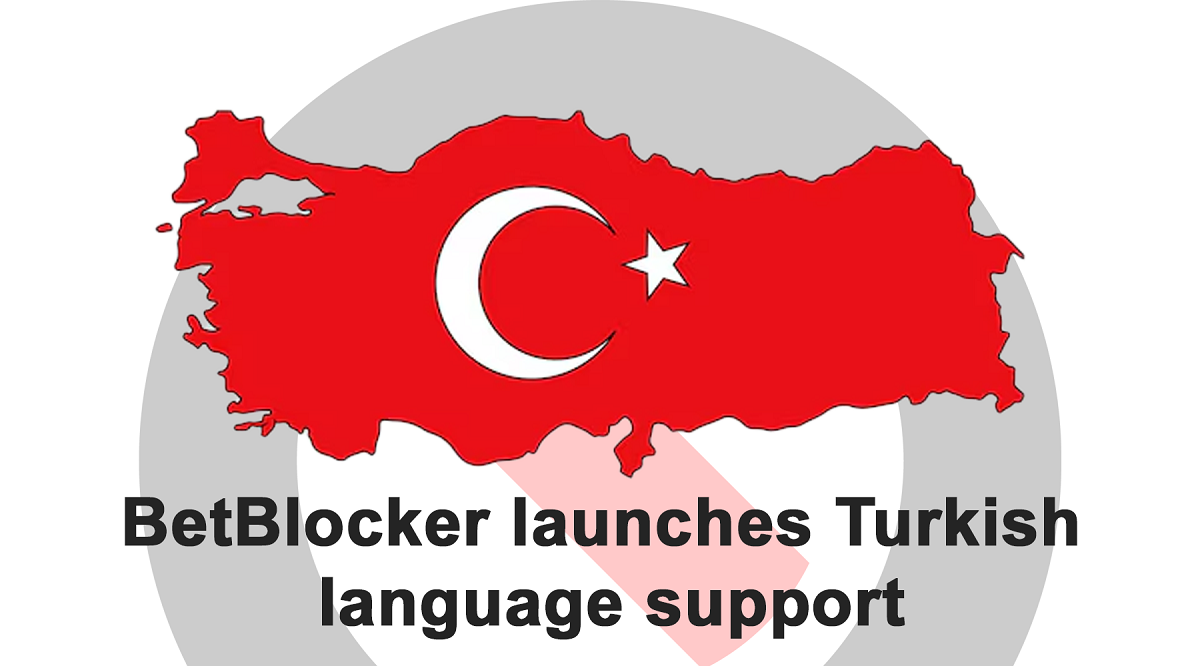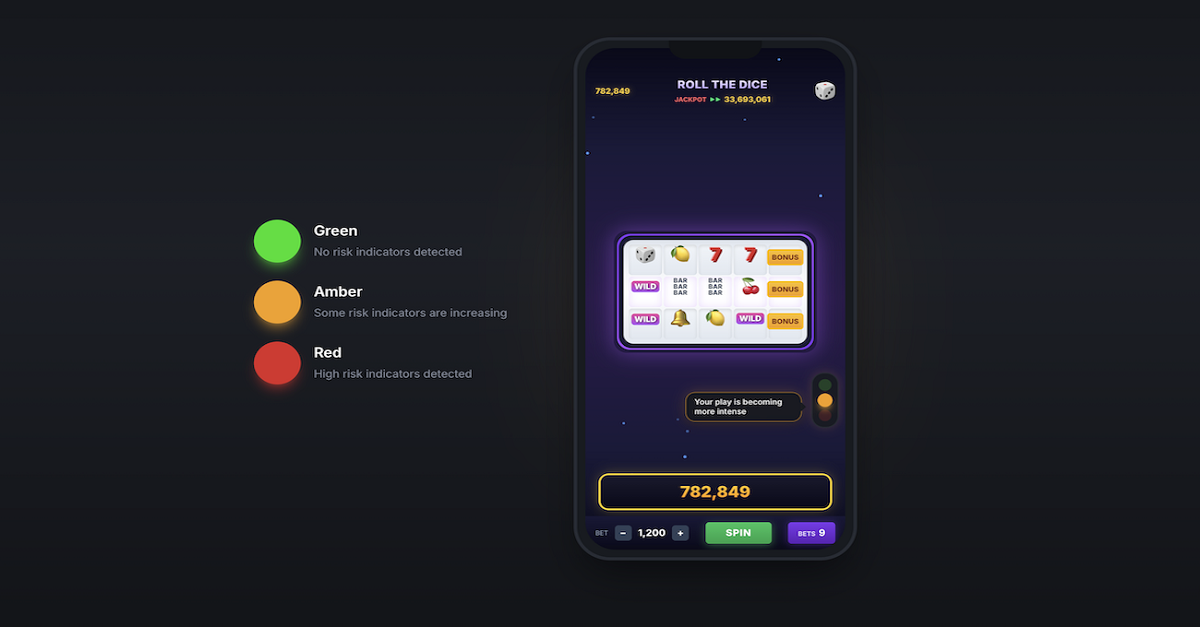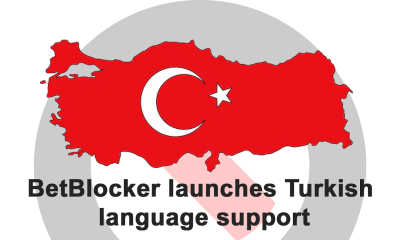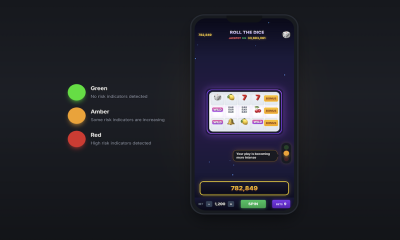Industry News
Starting a slot franchise: what does it take?

As the iGaming landscape continues to evolve, numerous suppliers are capitalising on their past successes by launching their own slot franchises. Despite the immense potential, initiating a franchise requires adept navigation through a range of challenges in order to reap the benefits. In this roundtable discussion, we gather insights from Relax Gaming, Blueprint Gaming, Thunderkick and RubyPlay, four prominent suppliers with franchises under their belt. From regulatory hurdles to technological innovations, we dive into the aspects that both challenge and enrich the path to establishing a new franchise.
With technology advancing at a rapid pace, how crucial is it for franchises to stay on top of the latest trends in slot development?
Mike Collins, Game Product Owner at Thunderkick: It’s extremely crucial – if you aren’t adapting with the times, you’ll attract less players and that’s the bottom line. Currently, whilst creating our titles, we work with a portrait-first and mobile-first ethos. With more customers than ever before using their phones to take a spin, it’s extremely important for every provider to consider how to make their games accessible to as many people as possible.
We also pay close attention to the evolution of available platforms and operating systems – compatibility and accessibility go hand-in-hand, and our titles will always use the most cutting-edge and modern technology available to ensure they play as intended.
Dr. Eyal Loz, Chief Product Officer at RubyPlay: There are no real incentives for developers to risk a well proven, money-making game franchise by changing key elements of the core experience. What we are seeing instead are add-on features, targeted at giving existing players new ways to engage with what they already familiar with. This is via elements such as side Mini Games, Prize Drops, Buy Features, Ante-Bet and so on.
The opposite is true when suppliers try to establish new franchises. Players are keen to try new things, but are more likely to churn if what they find is too similar to something that they already know. This is where the opportunity to bring in new technologies exist, but alas, innovation is very risky and expensive. In RubyPlay’s Immortal Ways series, we combined the well-known ‘10,000 ways to win’ concept players love with an innovative Hold and Spin mechanic, that was easy for players to understand. Players’ feedback was that they felt the game is familiar, but was also totally new at the same time. They were comfortable to try and then commit to it. At the end of the day, both players and the industry are very resistant to change and adaptation of new development.
Shelley Hannah, Chief Product Officer at Relax Gaming: It’s extremely crucial. I think gone are the days where player behaviour is predictable for the next five years. Nowadays, players have a lot more choice in the market and are more likely to explore different games at once.
We have to evolve our games and listen to player feedback both from a perspective of slot design, innovation and technology. As a franchise, it’s critical that we stay on top of the latest trends in order to remain a market leader.
The franchise can’t just be another skin or a slightly different variation of the first, second, third etc. It needs to bring much more than that to the table for the players of today.
Jo Purvis, Director of Marketing and Relationships at Blueprint Gaming: It is key to the success of any game, one slated for a franchise or otherwise. The core requirements of creating a successful game remain the same regardless. It’s a secret sauce that all suppliers strive to perfect – balancing the ever-challenging task of producing a regular supply of games to compete in a congested and super-competitive marketplace while ensuring that the quality remains consistently high.
Where franchises differ slightly is in retaining the magic of a successful original while offering enough new features and mechanics to justify the existence of the next iteration. Consumer taste across most mainstream media, be it movies, TV or games has for some time displayed a keen interest in sequels, spin-offs and more of their favourite brands, characters and universes. So while leveraging this is a huge boost, with it comes the challenge of meeting already high expectations.
Given the saturation of the market, how can new franchises distinguish themselves in terms of content and themes?
MC: Simply put, innovation is what will put providers ahead in such a crowded market. Consider the game’s name, theme, narrative and mechanics – if it’s all been done before, your new franchise is unlikely to make much of a splash. It admittedly can take some time to think of a totally original idea, however investing that time into creating something unique will pay off.
Elevating the gameplay experience will undoubtedly have an impact on the performance of your franchise, too. You want to immerse players in the games’ overarching story through the use of graphics, sounds and animations – going back to my previous answer, the evolution of technology in recent years has made it easier for developers to really go above and beyond what was once expected of online slots.
EL: Themes are a key way where suppliers can innovate, and keep high returns and overall business risk low. Within existing strong franchises, suppliers can explore new themes, new UIs and new innovative side features, while staying confident the product line will continue to perform. Savvy suppliers can keep their franchises fresh and relevant for many years if they manage them correctly.
With brand new game franchises, the best advice is that success usually rhymes with what players already know and love. Radical new ideas are less likely to make it through.
In Immortal Ways Diamonds we combined a classic theme with our innovative new franchise’s game mechanic. Since the series was released, we experimented with a large variety of themes each with slight changes to the volatility, math and flow of the games. We can say that one size does not fit all, and different themes perform differently with players in different jurisdictions.
SH: I think every studio has a DNA in how they create games which makes them stand out. I think it’s important to strike a balance between finding what already works for players and how you can put a fresh twist on it.
Bringing new concepts to market may sound like a risk to some, but we put faith in our extremely talented team around the world to drive differentiation which is at the heart of everything we do when we bring games to market.
Whether we want to explore a different slot theme or introduce groundbreaking technology or features, you need to have the talent and trust in your team to make it happen. Once you believe in what you do, it can take you anywhere.
JP: Differentiation is a vital tenet of game production too. Many studios are global now and with that growing number of world regions to sell to, there are equally diverse player preferences to cater to. An Egyptian theme, while popular, doesn’t guarantee a popular game. Knowing your craft and being able to hit the right notes in the maths model, the features across the base and bonus games and the overarching mechanics must align with animation, audio and design and getting all of these right consistently isn’t for the faint of heart.
With Blueprint Games, we’re able to lean on the years of heritage we have in taking the original success of a solidly built and curated game and applying these lessons to new titles. Having the right balance of experience and new, fresh ideas is crucial, as is a finger on the pulse of what players are engaging with in slots and beyond. It’s a complicated and deeply nuanced process.
How do you see the current regulations in key markets impacting the establishment and growth of new slot franchises?
MC: Navigating the regulatory landscape in key markets is crucial for the establishment and growth of new slot franchises. Regulations can present both challenges and opportunities for game providers – although compliance ensures a fair and secure experience, fostering trust among players, these regulations can also limit providers’ creative freedom.
Successful slot franchises strike that important balance by aligning with regulatory frameworks whilst simultaneously finding innovative ways to engage players. As always, staying attuned to emerging trends helps maintain a competitive edge within the ever-evolving industry.
EL: Historically, franchise games developed in highly regulated markets outperform other franchise games developed in less regulated market. That is, product designed with an unregulated market mindset struggles to adapt to complex regulatory restrictions. Therefore, I believe that regulation should be viewed as an advantage for the more creative designers.
In addition to that, franchise games that were developed to comply with strict regulated market restrictions can easily be supplemented with complimentary side features that can boost performance and player retention even further in less regulated environments. It’s always simpler for the business to relax designs than to restrict them.
In RubyPlay’s Immortal Ways series, we followed strict design principles, such that all games in the series will comply with the strictest regulatory requirements. Additional features we are developing such as Buy Feature for the Immortal Ways games will only be offered where regulation allows.
SH: This is something which impacts the whole industry, but as a new franchise it is paramount that you are up-to-date with the latest regulations and any potential changes that can impact any aspect of the game. It’s a challenge to come up with slots that not only fit the player’s needs but also rigidly follow many variations of rules in regulated markets.
Relax Gaming pulls out all the stops to ensure we meet the regulations and create a safe environment for players. Any franchise should have this at the core of its values.
There are more and more regulations being implemented across the gaming landscape. Building a successful franchise needs the most robust underlying technology which makes product adaptation easier when new regulations are introduced.
JP: There is obvious speculation on regulatory activity all the time, given the regular consultations the official bodies engage in and this obviously impacts game development. What we are seeing in many markets is that the current regulations don’t prevent or impact the growth of new slot franchises, they just set some specific rules that need to be rightly adhered to.
Studios see the benefits of consistency across jurisdictions and this helps them standardise and gain product development efficiencies. This results in not investing time in unique products for the demands of specific markets or building products that are overly complex. The opposite is that games need to be configured for the specific allowances or restrictions of different jurisdictions, which requires additional resources.
That being said, innovation comes out of many regulatory changes and franchises can always be adapted to develop and potentially grow with new product innovation.
Additionally, where certain regulations apply, we adapt and certify different versions of our industry-standard Jackpot King System to meet the specific needs, tailoring to market/operator size to be able to provide a compliant and engaging jackpot product.
Player loyalty is paramount in this industry. What engagement and retention strategies do you think are most effective for slot franchises in a crowded marketplace?
MC: Taking the mechanics from previous iterations within the franchise that really resonated with players is a clear-cut way to ensure retention for future releases. Don’t fix what isn’t broken – simply set your sights on improving upon earlier releases, and don’t stray too far from the original!
With that being said, it doesn’t hurt to add something new with each title in the franchise. Not only will you be keeping the gameplay experience fresh, but you’ll also drum up excitement for players who want to discover a fresh spin on a game they cherish.
EL: The holy grail for suppliers is developing an evergreen franchise, at which point, a dedicated product line should be established to create innovative experiences within that franchise. Innovative designs that don’t lose sight of the core player experience in the existing franchise games.
We never know what will hit a cord with players, but when a mechanic is found, one should build it into a series, respecting the parameters that made is successful in the first place. The average loyal player loves things feeling fresh, but also familiar and safe. When players lose their footing, they will churn.
That is why more and more designers are focusing on complimentary side features that can maintain the evergreen potential of existing franchise games, and are very effective in boosting long-term player loyalty.
RubyPlay’s Immortal Ways series is no different. A range of accompanying features are now in development, such as introducing the ability to purchase a feature, and other innovative changes to the gameplay without impacting the core gameplay that works so well.
SH: I think it’s vital that you know your market inside out and you know what your players like. We can use data to get a picture of the players that are loving the franchise, working with operators to ensure the subsequent releases are visible for those players. This can be done in numerous ways, including mailers and promotional campaigns. This all helps play a part in a players subconsciousness when it comes to choosing who to play with.
As we touched on earlier, we take our player feedback seriously too. If a player can see steps are being taken to enrich their experience, then they are more likely to engage and built a trusting relationship.
JP: Knowing your customer is vital. Being able to pitch the right games to the right markets and their players can be the difference between well-received titles and those that fail. Then being able to build on those and make the most out of what works is something that Blueprint has had great success with. We’ve achieved that level of market optimisation in the UK with slot series such as Luck of the Irish, which has just seen its third iteration, whereas other IPs like our Kong games have earned their reputation in international markets.
We don’t consider features market-specific but emphasize slot themes, mechanics and brands that resonate with particular jurisdictions.
BetBlocker
New Turkish-language tool from BetBlocker extends service to 90 million additional people

Gambling harm prevention charity BetBlocker today reveals the extension of their award-winning assistance into Turkish.
In 2025, BetBlocker saw a tremendous increase in support, with more than three hundred thousand individual users initiating a block throughout the year. This significant level of engagement has been made possible by the diverse array of languages into which the charity has translated its assistance.
Yesilay, the main Turkish support service, reports that requests for help with gambling are now surpassing those for alcohol, drugs, or tobacco, alongside significant uptake and harm among youth, making the launch of Turkish language support timely and relevant.
Founder and Trustee for BetBlocker, Duncan Garvie, offered these comments: “BetBlocker is genuinely excited to roll out our second language expansion of 2026.
We’ve experienced phenomenal uptake of the service over the last 12 months and figures hare steadily rising. One of the biggest drivers of that growth has been improving the accessibility of our support by meeting users where they are and offering support in the language that they’re most comfortable accessing in.
Alongside Turkey itself, there are substantial Turkish speaking communities across Europe, the Middle East and North America. It is our hope that this evolution of BetBlocker will ensure that a deeper level of support is available more widely across the Turkish diaspora.
BetBlocker would like to offer our deepest thanks to Fatmatuz Zehra Pehlivan, a Clinical Psychologist and researcher, who volunteers Green Cresent in the field of addiction treatment. Fatmatuz volunteered her time to help translate our app, and every Turkish language user we support owe her their thanks for the donation of her time and expertise.
As with many of the communities BetBlocker now supports, we would not be able to reach so many people without the kindness and generosity of field experts like Fatmatuz.”
The post New Turkish-language tool from BetBlocker extends service to 90 million additional people appeared first on Eastern European Gaming | Global iGaming & Tech Intelligence Hub.
Anastasia Rimskaya Chief Account Officer at Aviatrix
Aviatrix Launches New Loot Boxes to Deepen Progression and Reward Paths

Aviatrix has launched a new Loot Box feature for its premier crash game, presenting collectible rewards, free bets, and progression bonuses aimed at boosting long-term player engagement.
Loot Boxes are granted through a daily rewards mechanism, with players obtaining them according to their in-game actions and advancement. Every box holds a variety of rewards, such as aircraft skins, complimentary bets, and aviation experience points.
The feature enhances Aviatrix’s developing loyalty system, providing players with fresh options to personalize their aircraft and earn rewards through continuous engagement.
Anastasia Rimskaya, Chief Account Officer at Aviatrix, said: “Loot Boxes are part of our wider vision for Aviatrix as a connected multi-game universe. As we expand our iGaming Metaverse, features like Loot Boxes add another meaningful layer to how players build their profile, customise their aircraft and earn rewards across the ecosystem.”
Unveiled in February, the Aviatrix iGaming Metaverse signifies the supplier’s shift from a standalone crash game to an integrated multi-title ecosystem.
Starting with the imminent debut of Aviatrix Second Chance and continuing with upcoming titles like Aviatrix Fruits and Aviatrix Mines, every game will utilize a single integrated player profile, progression system, and rewards and achievements framework.
The post Aviatrix Launches New Loot Boxes to Deepen Progression and Reward Paths appeared first on Eastern European Gaming | Global iGaming & Tech Intelligence Hub.
Alec Gehlot Chief Executive Officer at PlaySignal
PlaySignal Debuts: Alec Gehlot’s New Sophisticated Responsible Gaming Platform

Alec Gehlot, previous senior executive at Optimove, has introduced PlaySignal, a responsible gaming platform aimed at assisting operators in identifying and addressing player risk promptly.
PlaySignal employs a traffic-light system featuring green, amber, and red signals to steer player conduct and indicate when behaviors start to enter higher-risk areas. The platform seeks to minimize avoidable exclusions by offering operators enhanced visibility of rising risks, while simultaneously giving players more understanding of how their actions are evaluated.
Leveraging behavioural analytics, PlaySignal tracks player actions during gameplay and displays information as distinct signals. This allows teams to act earlier and react more appropriately as risk evolves.
The product connects with current operator systems to assist responsible gaming, CRM, and compliance teams by providing a unified view of activities, encouraging a more uniform strategy among teams as regulatory demands grow in important markets.
Building on his time at Optimove, where he collaborated with operators on segmentation, retention, and user engagement, Gehlot recognized a demand for innovative tools to enhance player protection as regulatory and tax pressures mount in regulated markets.
The company launched PlaySignal at ICE earlier this year, where it was a contender in the Innovators Challenge, and initiated talks with operators in various markets. The initial launch will concentrate on the UK prior to global expansion.
Alec Gehlot, Chief Executive Officer at PlaySignal, said: “Regulation and taxation are only moving in one direction, and operators need new tools to adapt. Player protection can no longer be treated as a compliance obligation; it has to become a competitive differentiator.
“Regulated operators are under real pressure, particularly in the UK, and we believe giving them earlier visibility of risk is essential not just for protection, but for long-term sustainability.”
The post PlaySignal Debuts: Alec Gehlot’s New Sophisticated Responsible Gaming Platform appeared first on Eastern European Gaming | Global iGaming & Tech Intelligence Hub.
-

 Blueprint Gaming7 days ago
Blueprint Gaming7 days agoBlueprint Gaming unleashes Frankenstein’s Fortune blending dynamic modifiers with multi-path bonus offering
-

 Compliance Updates7 days ago
Compliance Updates7 days agoMGA Publishes Results of Thematic Review on Self-exclusion Practices in Online Gaming Sector
-

 Latest News6 days ago
Latest News6 days agoGGBET UA hosts Media Game – an open FC Dynamo Kyiv training session with journalists from sports publications
-

 Amusnet7 days ago
Amusnet7 days agoAmusnet Unveils Casino Engineering and Technology Milestones Achieved in 2025
-

 Dan Brown7 days ago
Dan Brown7 days agoGames Global and Foxium return to the Colosseum in Rome Fight for Gold the Tiger’s Rage™
-

 Bragg Gaming Group7 days ago
Bragg Gaming Group7 days agoBragg Gaming Group Partners with StarGames
-

 Asia6 days ago
Asia6 days agoBooks on Wheels: DigiPlus Foundation Brings Mobile Library to Boost Literacy Among Aurora’s Young Learners
-

 3 Oaks Gaming7 days ago
3 Oaks Gaming7 days ago3 Oaks Gaming unleashes the power of the wild with 4 Wolf Drums: Hold and Win































